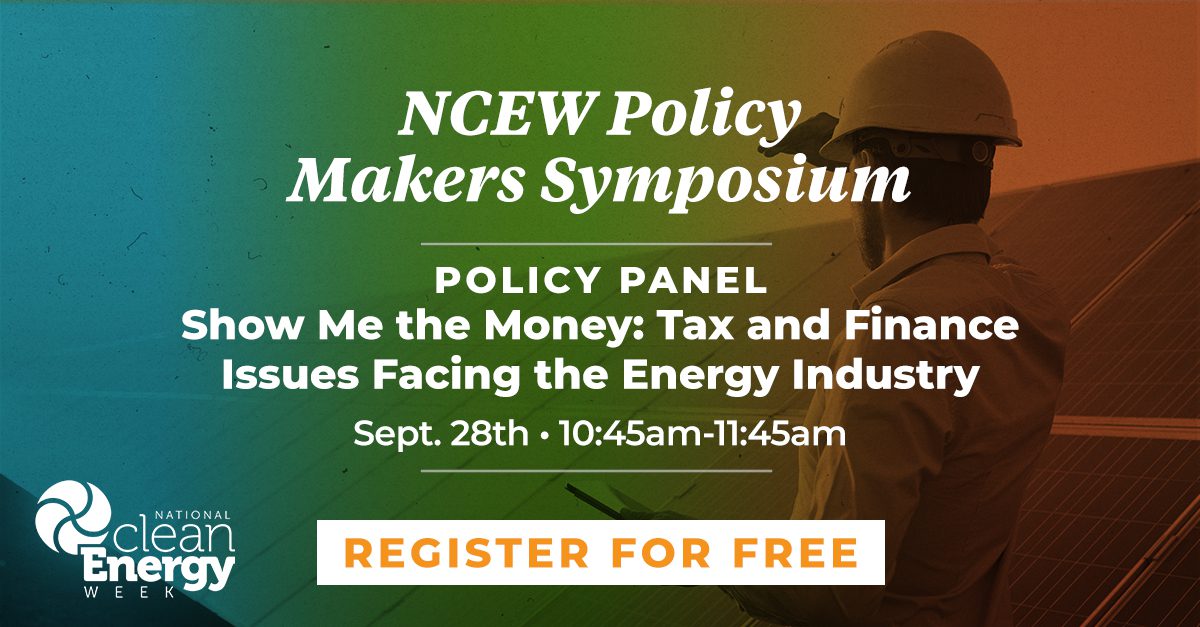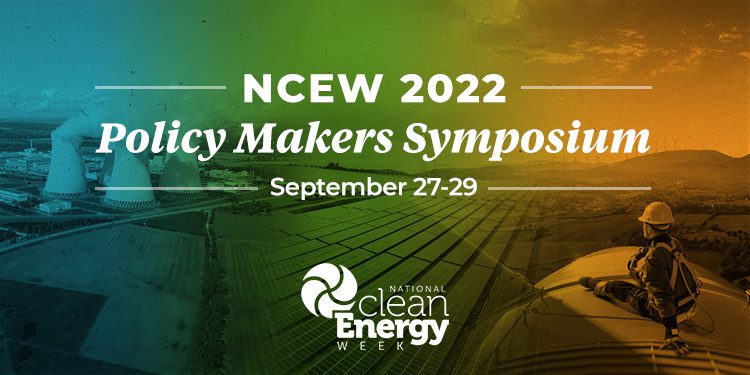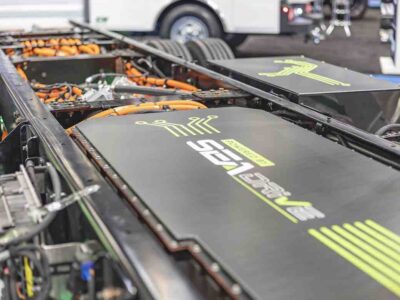Day two of National Clean Energy Week’s (NCEW) 6th Annual Policy Makers Symposium included a panel of industry experts discussing tax and finance issues facing the energy industry. Entitled “Show Me The Money,” the panel was expertly moderated by Brandon Arnold, Executive Vice President of the National Taxpayers Union (NTU). Panelists included:
- John Di Stasio, President, Large Public Power Council
- Bill Parsons, Vice President, Federal and State Affairs, American Clean Power Association (ACP)
- Marc Pangburn, Executive Vice President and Co-Chief Investment Officer, Hannon Armstrong
- Ray Long, Senior Vice President, External Affairs, Clearway Energy Group
The conversation centered around two topics: the implementation of the recently-passed Inflation Reduction Act (IRA) and the future of the permitting reform package. Earlier in the week, Senator Joe Manchin (D-WV) had requested Senate Majority Leader Chuck Schumer (D-NY) remove his permitting reform package from the stopgap government funding mechanism. Manchin cast the tie-breaking vote for the IRA in exchange for a vote on permitting reform.

The panel agreed on the positive aspects of the IRA, specifically the certainty it provides the industry. Bill Parsons with the American Clean Power Association noted the industry has “never had 10 plus years in certainty, which gives companies the ability to plan.” He predicted the IRA would support “over a million new jobs” and called it a “big growth opportunity for our members.” Marc Pangburn with Hannon Armstrong agreed, analogizing the IRA to “a long-term runway.” Ray Long said his company’s investments are driven by customer demand focused on three key areas: price, reliability, and a clean product, and described the IRA as “supercharging” Clearway’s ability to meet all three. John Di Stasio, President of the Large Public Power Council, rounded out the conversation by praising the “optionality” of the IRA, lauding the legislation as “one of the most significant things I have seen in my career in the utility sector.”
Brandon Arnold, NTU Executive Vice President, and the panel moderator, next queried the participants about the IRA’s ability to ameliorate the uncertainty around trade and supply chain issues. The panel again agreed on the need for the Biden Administration to revisit the tariffs implemented by their predecessor. Ray Long with Clean Energy Group noted that Republican and Democratic administrations prioritized onshoring manufacturing jobs, describing the effort as a “worthwhile exercise.” But he noted that “you can’t flip a switch” and “tariffs do not incentivize manufacturing.”
Arnold brought the conversation back to kitchen table issues, noting Americans’ inflationary challenges and asking panelists how long it would take for citizens to see the legislation’s tangible benefit. Again, the panelists agreed, stating that the rate of change will be uneven and differ by region and industry.
On the topic of electric vehicles in the IRA, participants expressed concern about the sourcing requirements for battery production in the United States. According to Ray Long, 77 percent of electric battery sourcing takes place in Asia, 13 percent in Europe, and 10 percent in North America, yet most of the demand is here in the United States. Long added, “we need to be able to source these things internationally,” noting that “Tariffs will bring progress toward a screeching halt.”
The panel closed with a question about priorities for Congress in the lame duck. Once again, there was widespread agreement: guidance from the Treasury Department on tax credits within the IRA and permitting reform.
After commenting that he shared their view on permitting reform, NTU’s Arnold closed the panel on “a note of unanimity.”





